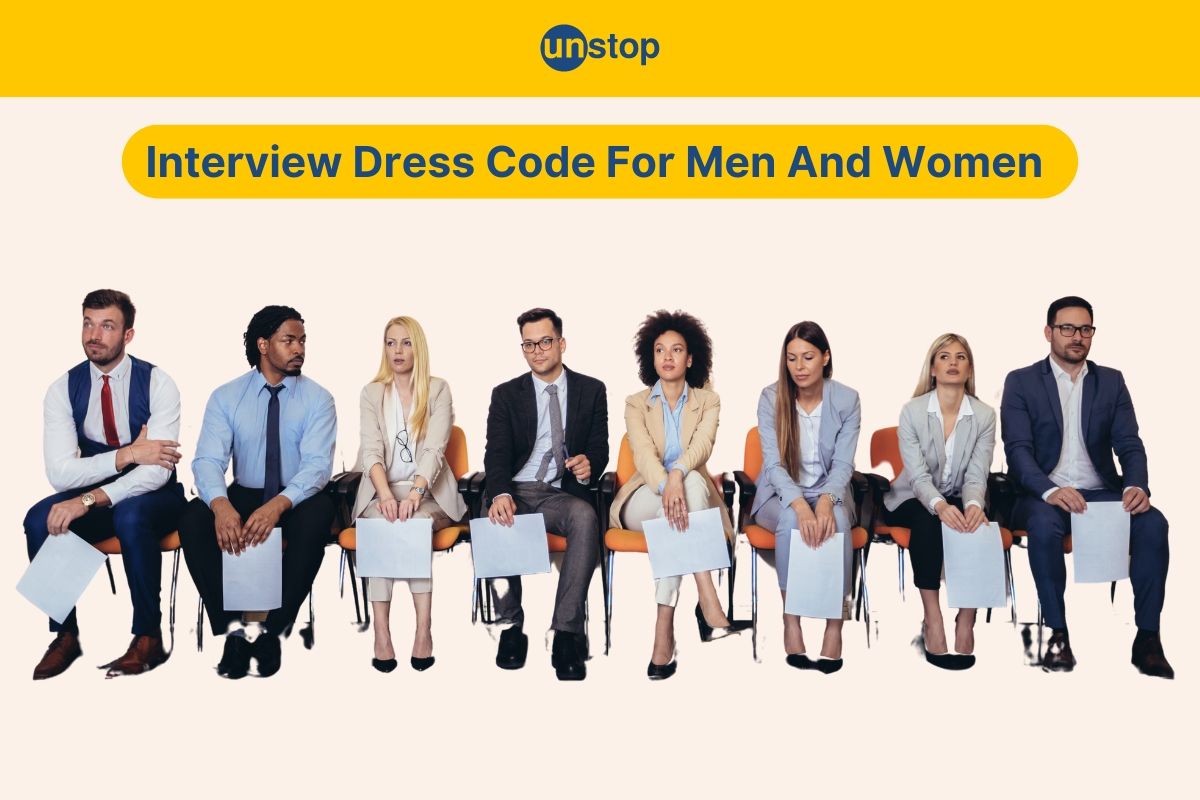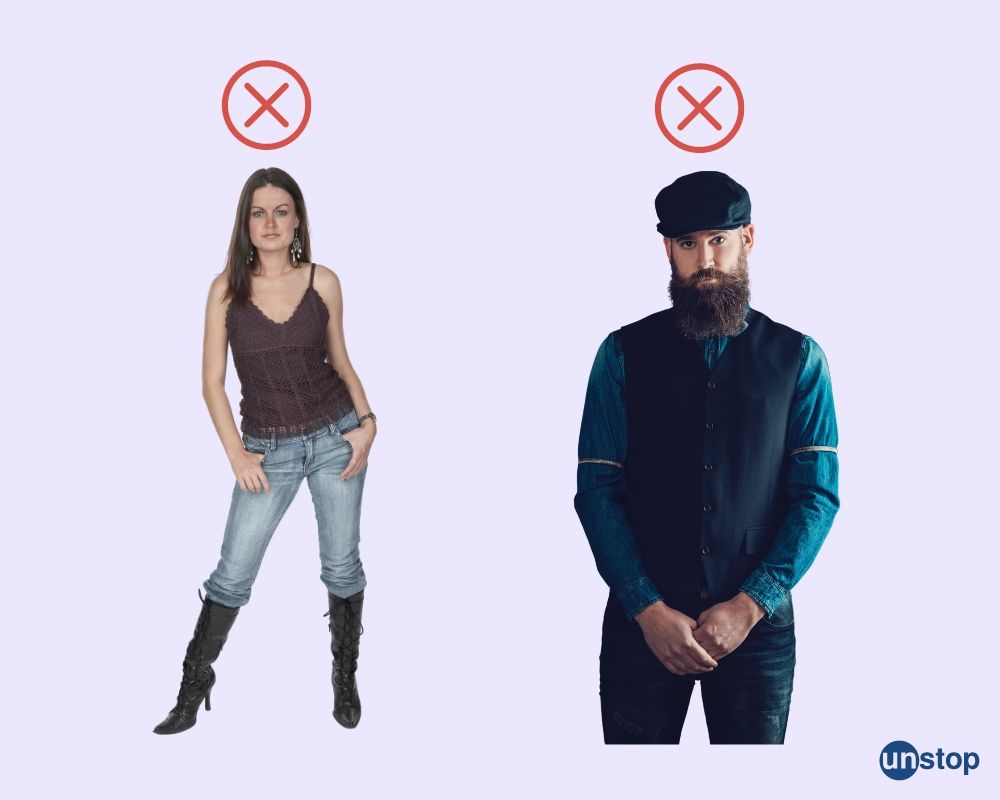- Self-Introduction For Freshers: Importance
- Components Of An Effective Self-Introduction
- How To Craft A Compelling Self-Introduction
- Self-Introduction for Freshers: Samples
- How To Highlight Your Qualifications & Experiences
- Incorporating Personal Interests & Future Plans
- Mastering Verbal & Non-verbal Communication Techniques
- Tailoring Your Introduction For Different Job Roles
- Common Mistakes To Avoid During Self-Introductions
- Conclusion
- Frequently Asked Questions (FAQs)
- Importance Of Extracurricular Activities In Resumes
- Types Of Extracurricular Activities To Include
- Best Extracurricular Activities For Different Fields
- Listing Extracurricular Activities In A Resume
- Adding Activities In The Education & Achievement Sections
- Soft Skills Gained From Extracurricular Activities
- Tailoring Activities Relevant To The Job Application
- Tips For Effective Inclusion Of Extracurricular Activities In Your Resume
- Frequently Asked Questions (FAQs)
- Importance Of Declining A Job Offer Respectfully
- Politely Decline A Job Offer With Gratitude
- Practical Tips For Declining Through Email
- Declining A Job Offer Over The Phone
- Declining After Acceptance Of Job Offer
- Salary, Timing, & Other Offers As Reasons
- Positive Relationship After Declining
- Frequently Asked Questions (FAQs)
- What is a Salary Increment?
- Factors Affecting Salary Increment
- Procedure for Salary Increment
- Formula to Calculate Salary Increment
- Formula to Calculate Salary Increment Percentage
- Benefits of Salary Increment
- How to Negotiate A Fair Salary Increment
- Importance Of Transparency In Salary Increments
- Making Better Financial Plans After Salary Increment
- Resignation After or Before Salary Increment
- Frequently Asked Questions (FAQs)
- Job Offer Acceptance Letter: Meaning & Importance
- Key Components of a Job Acceptance Letter Explained
- Job Offer Acceptance Letter Template
- Accepting a Job Offer via Email: Important Tips
- Job Offer Acceptance Letter Samples
- Composing A Job Offer Acceptance Letter: Key Tips
- Post-Acceptance Protocol
- Conclusion
- Frequently Asked Questions (FAQs)
- What is a Provisional Certificate?
- Provisional Certificate Application Process
- Sample Of A Provisional Certificate
- Benefits Of a Provisional Certificate
- Conclusion
- Frequently Asked Questions (FAQ)
- Definition Of Your Current CTC & Expected CTC
- Factors To Consider During Salary Negotiation
- Tips & Examples To Answer What Salary Do You Expect
- Understanding How Your CTC Is Calculated
- Crafting & Presenting Your Current CTC Effectively
- How To Write Current CTC & Expected CTC In Email
- Analyzing Detailed Breakdown Of Your CTC
- Conclusion
- Frequently Asked Questions (FAQs)
- Definition & Purpose Of Notice Period
- Importance Of Notice Period
- Types Of Notice Period
- Tasks & Expectation During Notice
- Notice Period Format Sample
- Other Aspects Related To Notice Period
- Conclusion
- Frequently Asked Questions (FAQs)
- Most Common Reasons for Job Change
- Current Trends Influencing Job Changes (2024-2025)
- Tips to Craft Your Best Answer for Job Change
- Conclusion
- Hard Work Vs Smart Work- Difference
- Examples Of Hard Work Vs Smart Work
- Ways To Hone Your Smart Work Skills
- Utilizing SMART Goal Approach
- Essence Of Hard Work
- Essence Of Smart Work
- Combining Benefits Of Hard & Smart Work
- Enhancing Efficiency Work Approach
- Closing Thoughts
- Frequently Asked Questions
- Defining What Is Probation Period
- Activities During The Probation Period
- Salary During The Probation Period
- Importance Of Completing The Probation Period
- Probation Period Extension Explained
- How To Successfully Complete Probation Period
- Closing Thoughts
- Frequently Asked Questions (FAQs)
- Definition & Its Origin Of Garden Leave
- What Happens To An Employee During Garden Leave?
- Advantages Of Garden Leave
- Disadvantages Of Garden Leave
- Duration Of Garden Leave & Its Impact
- Identifying Employees Suitable For Garden Leave
- Best Time To Use Garden Leaves
- When To Avoid Gardening Leave
- Consequences Of An Employee Declining Garden Leave
- Employers' Guide To Making The Most Of Garden Leave
- Rights And Obligations Under Garden Leaves
- Summary
- Frequently Asked Questions (FAQs)
- What is an Interview?
- What Do Companies Look For During An Interview?
- Types Of Interview Formats
- Types Of Interview Questions
- Interview Tips For Freshers
- Conclusion
- Frequently Asked Questions (FAQs)
- Group Discussion & Its Purpose Explained
- Importance Of Group Discussion
- Types Of Group Discussion
- Characteristics Of Group Discussion
- Skills And Success Tips Of Group Discussion
- Mistakes & Topics To Avoid In Group Discussion
- Final Remarks
- Frequently Asked Questions
- Understanding What Job Application Is
- Nitty Gritty Of Job Application
- Step-by-step Guide On How To Apply For A Job
- Effective Tips For Job Applicants
- Conclusion
- Frequently Asked Questions (FAQs)
- Significance Of Emailing Your Resume
- What To Write In An Email When Sending A Resume
- Samples Emails When Sending A Resume
- Final Remarks
- Frequently Asked Questions (FAQs)
- Decoding Dress Code For Interview
- Interview Dress Code For Men
- Interview Dress Code For Women
- Outfits To Be Avoided For A Job Interview
- Conclusion
- Frequently Asked Questions (FAQs)
- Understanding Biodata in Job Applications
- Crafting an Effective Biodata for Your Job Search
- 10 Tips for an Effective Biodata
- Biodata vs. Resume vs. CV: Understanding the Differences
- Understanding a Biodata Format (Sample Template)
- Frequently Asked Questions (FAQs)
- Creating An Appealing Resume For Job Search
- 7 Types Of Resumes For Job Application
- Tips For Crafting An Effective Resume
- Conclusion
- Frequently Asked Questions (FAQs)
- Definition Of CTC
- Understanding The Components Of CTC
- Formula To Calculate CTC
- Example Of CTC Breakdown
- Benefits Of Cost To Company
- Understanding Gross Salary And Net Salary
- Conclusion
- Frequently Asked Questions (FAQs)
- Understanding Your Ambition In Life
- How To Answer The Question During Interview
- Do’s And Don'ts While Answering The Question
- Examples Of Sample Answers
- Summary
- Frequently Asked Questions
- Definition & Purpose Of An Apology Letter
- Understanding The Basic Components
- Knowing When To Write
- Tips To Craft An Effective Apology Letter
- Mistakes To Be Avoided
- Example & Format Of An Apology Letter
- Summary
- Frequently Asked Questions
- What Is A Job & What Is Leaving A Job
- Top 10 Reasons For Leaving A Job
- How To Prepare When Planning To Leave A Job
- Tips To Explain Your Departure To Your Employer
- Sample Answers For Leaving A Job
- Conclusion
- Frequently Asked Questions (FAQs)
- Annual Income & Calculation Explained
- Formula For Annual Income Calculation
- Examples Of Annual Income Calculation
- Gross Income Vs. Net Income
- Conclusion
- Frequently Asked Questions
- Understanding What Is Severance Pay
- Importance Of Understanding Severance Pay
- Why Companies Offer Severance Pay
- Essential Components Of Severance Package
- Eligibility Conditions For Severance Packages
- Tax Implications Of Severance Pay
- Conclusion
- Frequently Asked Questions (FAQs)
- Understanding A Job Application Letter
- Format Of A Job Application Letter
- Importance Of A Well-Crafted Application Letter
- Tips For Crafting A Compelling Job Application
- Sample Letters For Various Profiles
- Conclusion
- Frequently Asked Questions (FAQs)
- Meaning Of Job Profile & Purpose
- Key Components Of A Job Profile
- Benefits Of Job Profiles For Employers
- 5 Best Tips For Crafting An Effective Job Profile
- Common Pitfalls To Avoid In Job Profile Descriptions
- Job Profile Vs Profile Summary
- Summary
- Frequently Asked Questions (FAQs)
- Understanding Full and Final Settlement
- Components of Full and Final Settlement
- Pre-Requisite to Calculating FnF
- Calculating FnF: Process and Timing
- Final Settlement Letters
- Final Remarks
- Frequently Asked Questions
- Definition Of Teamwork Skills
- Types Of Teamwork Skills
- Benefits Of Teamwork Skills
- Strategies For Improvement Of Skills
- Showcasing Teamwork Skills Effectively
- Conclusion
- Frequently Asked Questions (FAQs)
- What are the Barriers of Communication?
- Types of Barriers of Communication
- Top Barriers of Communication: The Most Common Culprits
- Strategies to Overcome Communication Barriers
- Frequently Asked Questions (FAQs)
- Definition & Factors Of Workplace Anxiety
- Recognizing Signs & Symptoms Of Anxiety
- Strategies & Tips To Handle Workplace Anxiety
- Summary
- Frequently Asked Questions (FAQs)
Interview Dress Code For Men And Women (Outfits To Be Avoided)

To leave a good impression at your next job interview, it's essential to dress appropriately. Understanding the interview dress code for males and females is crucial to appear professional and prepared for the opportunity.
Discover the essentials of dressing for success in interviews, from selecting appropriate clothes to grasping the importance of grooming. This comprehensive guide provides expert insights and strategies to help you make a lasting impression on your future employers.
Decoding Dress Code For Interview
To begin with, let us understand the importance and how to go about choosing the most appropriate attire when going for an interview:

First Impressions
Dressing appropriately for an interview is very important, as it creates a positive first impression. The attire you choose can convey a great deal about you even before you utter a single word.
Dressing in a manner that demonstrates your respect for the job role and aligns with the overall ambience of the company you aspire to join matters.
Research Company Culture
Before choosing what to wear for your interview, make sure to understand the company's culture. Research their dress code policy if you can find it, and be sure that your outfit shows professionalism while also fitting in with industry standards.
Unlock endless job & internship opportunities!

Interview Dress Code For Men
Let us look at some of the recommended dress codes for men during interviews:

Business Attire
Men should wear business attire to a formal job interview. Choose a well-fitted suit in neutral tones such as navy or charcoal. Match it with a clean white dress shirt and a traditional tie.
For interviews, it's essential to wear polished dress shoes and avoid excessive accessories. Your grooming should be neat, including tidy hair and well-maintained facial hair. Pairing a professional resume with your smart attire is a good idea.
Business Casual
For less strict places such as IT or startup companies, it's fine to go with business casual attire. You can wear slacks or khakis, a button-up shirt, or a cosy sweater. While not necessary, adding a blazer can make your outfit more polished.
To make a good impression, it's important to avoid wearing jeans and instead choose closed-toe shoes. Even in business casual environments, looking neat and polished is key.
Casual Interviews
For casual interviews or work settings, it's essential to dress in tidy attire. Opt for properly fitting bottoms and tops that offer decent coverage. Steer clear of overly revealing or attention-grabbing clothing options.
Comfortable footwear is essential during interviews, particularly if you anticipate standing for extended periods. Demonstrating professional attire, even in casual settings, indicates your appreciation for the opportunity presented.
Interview Dress Code For Women
Now, let us look at the recommended interview dress code for women:

Company Culture
It is important to ensure that women select suitable interview attire that aligns with a company's dress code standards; it is essential to research the organization's culture beforehand.
In professional environments, it's best to wear formal business clothes like a well-fitted suit or a knee-length skirt paired with a blouse. This choice exudes professionalism and confidence.
Casual Or Worker Environment
For those in laid-back workplaces, it's important to think about what to wear. Opt for smart casual attire, such as fitted trousers matched with a top or a basic dress paired with a cosy cardigan.
Make sure to style your hair neatly and keep your accessories to a minimum. This will help bring out your personality without taking away from your outfit.
Looking for the perfect JOB or INTERNSHIP? Explore hundreds of job roles across multiple domains on Unstop!
Outfits To Be Avoided For A Job Interview
To make a good impression in an interview, it's crucial to know what clothes to avoid. The key is to appear professional and capable, and some outfit selections may not help convey that message:

Avoid Casual & Inappropriate Attire
Avoid casual attire such as jeans, t-shirts, shorts, and athletic wear to interviews as they are too informal and may give off an impression of not taking the opportunity seriously.
Stay away from clothes with offensive or controversial messages or graphics. It's best to opt for neutral and non-controversial clothing choices.
Avoid Revealing & Ill-Fitting Attire
To present yourself professionally during interviews, it's best to avoid outfits that show too much skin, like low-cut tops, super short skirts, or tight clothes. Choose modest clothing instead.
Clothes that don't fit well can be distracting and suggest a lack of attention to detail. Make sure your attire fits nicely and complements your body shape.
Avoid Flashy & Distracting Accessories
During interview preparation, it's important to avoid wearing too many flashy accessories that could distract from your presentation. Keep your jewellery and other accessories simple and understated.
Save bold pieces for later and choose a more subtle look instead. Also, try to limit hats, headbands, or scarves unless they have cultural or religious significance for you.
Avoid Excessive Use Of Perfume
Avoid overdoing it with perfume, cologne, or any strong scents, as they might be overwhelming and cause discomfort to others, especially those with sensitivities or allergies.
Untidy & Unkempt Appearance
Ensure your attire for the interview is clean and tidy, free from creases or marks. Keep your clothing well-cared for and nicely pressed.
Focus on grooming with neat hair, trimmed nails, and shiny shoes. A dishevelled look might suggest a lack of professionalism and attention to detail.
Shoes To Be Avoided
Avoid wearing flip-flops and high boots when going for an interview.
Conclusion
Now that you've figured out how to dress for interviews know what to wear for men and women, and learned key dressing advice, you're ready to leave a strong impression at your next interview.
Dressing appropriately with the right attire shows respect for the opportunity and demonstrates your professionalism and attention to detail. Remember, your outfit is your first introduction before you even speak a word. So, make it count!
Frequently Asked Questions (FAQs)
1. What is the importance of dressing appropriately for a job interview?
Dressing appropriately for a job interview displays your professionalism, respect, and attention to detail, creating a positive first impression during the interview.
2. How should men dress for a job interview?
Men should wear a well-fitted suit in neutral colours like navy or grey, paired with a clean, pressed shirt and tie. Choose professional shoes and ensure grooming is impeccable.
3. What attire is suitable for women in a job interview setting?
Women can opt for a tailored suit, blouse, or dress in conservative colours. Ensure the outfit is not too tight or revealing. Accessories should be minimal, and shoes should be comfortable yet stylish.
4. Are there any specific tips for dressing for success in an interview?
Ensure clothes are clean, ironed, and fit well. Avoid strong perfumes or colognes. Also, pay attention to grooming details like neat hair and trimmed nails. Dressing conservatively is usually safer than being overly trendy.
5. How can one decode the dress codes for the interview effectively?
Decoding dress codes involves understanding the company culture. Research the organization's norms - formal, business casual, or creative attire. When in doubt, it's better to err on the side of caution with more formal wear.
Suggested reads:
- What To Write In An Email When Sending A Resume (Tips & Samples)
- What Is Group Discussion- Definition, Importance, Types & Tips
- How To Apply For A Job | 6 Best Steps & Tips For Job Application
- Loud Quitting - What Lies Behind The Noise & How HRs Can Navigate
- Hard Work Vs Smart Work- Difference, Approach, Example & Benefit
Instinctively, I fall for nature, music, humor, reading, writing, listening, traveling, observing, learning, unlearning, friendship, exercise, etc., all these from the cradle to the grave- that's ME! It's my irrefutable belief in the uniqueness of all. I'll vehemently defend your right to be your best while I expect the same from you!
Login to continue reading
And access exclusive content, personalized recommendations, and career-boosting opportunities.
Subscribe
to our newsletter















Comments
Add comment